Roy D. Steinberg – 2-Day Certificate Course on The Aging Brain, Alzheimer’s Disease, and Other Dementias
$300.00 Original price was: $300.00.$113.05Current price is: $113.05.
Available for Pre-Order. This product will be available within a few days.
Roy D. Steinberg – 2-Day Certificate Course on The Aging Brain, Alzheimer’s Disease, and Other Dementias
- Clearly understand how to diagnose Alzheimer’s disease and differentiate it from other dementias
- Easy-to-use tools that assess for possible cognitive difficulties and identify underlying psychological conditions
- Get the most effective interventions for coping with combativeness, depression, and other difficult behaviors
- Powerful strategies for successfully working in collaboration with caregivers and family
- Explore the latest medications and preventative treatments related to cognitive decline
Working with people suffering with dementia can feel overwhelming. You worry because your patients’ needs aren’t clearly communicated and you need a better way to reach them. Difficult behavioral issues like depression, agitation and resistance often get in the way of your ability to provide optimal care. Interventions and techniques that worked yesterday, don’t work today. Distressed families have a litany of questions and concerns, and you’re the one who needs to give the difficult answers. You even need to work with patients and their spouses regarding uncomfortable personal matters like sexual intimacy – issues they didn’t teach you about at school.
Roy D. Steinberg, PhD, is a gero-psychologist and nationally recognized speaker for professionals and laypersons on the assessment and treatment of individuals with Alzheimer’s disease. He has spent the last 30 years immersed in the Alzheimer’s and dementia field, providing evaluation, consultation, and psychotherapeutic services to older adults as well as outpatient consultation, education, and counseling services to their families and caregivers. Through his work, Dr. Steinberg has perfected the recipe of what works and what doesn’t with dementia patients and acquired the hands-on skills, techniques, and solutions you need to handle the challenges, answer your questions, and provide the best care possible.
In this critical workshop Dr. Steinberg will bring to life the tools, strategies, and therapeutic practices you need to best serve your older adult patients facing Alzheimer’s disease and other dementias, as well as significant mental health issues such as depression and anxiety. Return to your practice better able to evaluate, assess, and differentiate between different types of dementias and recognize underlying psychological conditions. Broaden your understanding of medications and preventative treatments, and understand their impact on older patients and your practice. Walk away with practical and easy-to-implement tools that effectively intervene in depression, anxiety, aggression and other psychological and behavioral presentations. Learn to put a game plan in place that maximizes support for patients in partnership with caregivers and family members.
Key benefits of watching:
- Gain a clear understanding of the diagnostic criteria for Alzheimer’s disease and other dementias.
- Sidestep problem behaviors – identify and understand triggers for delusions, resisting care, and anxiety.
- Up-to-date behavioral interventions to manage agitation and elopement, reduce risks, and allow you to adapt treatment as the disease progresses.
- Tools to recognize the most frequently seen psychological conditions in older adults.
- Therapeutic interventions related to mental health concerns.
- Tips and tactics for working in partnership with families to improve care.
- Learn how to handle sexuality and intimacy issues across the continuum of older adults with confidence and sensitivity.
In an energetic and uplifting style, Dr. Steinberg will draw you into the dire nature of dementia and leave you feeling empowered and eager to use your new skills.
Don’t wait, sign up for this essential course and get your Certificate in The Aging Brain – Alzheimer’s disease, and Other Dementias!
- Explore brain function in older adults, recognize the impact of dementia on brain structure and function, and determine the difference between “normal forgetfulness” and cognitive impairment.
- Diagnose Alzheimer’s disease and distinguish it from other dementias by accurately identifying manifestations of each type and understand how these differences impact diagnosis and prognosis in older adults.
- Articulate differences between the Folstein Mini-Mental Status examination, SLUMS, and MOCA as screening measuring tools for cognitive impairment and dementia.
- Communicate answers to the most difficult questions family members ask regarding diagnosis and prognosis with confidence and sensitivity.
- Detect triggers for delusions, resisting care, and combativeness and learn to defuse problem behaviors with clinical strategies that reduce risks and can be adjusted as the disease progresses.
- Adapt clinical interventions used in-session to provide patients with individualized care and promote more effective participation in therapy.
- Correlate patients’ strengths and limitations to potential therapeutic approaches when developing treatment plans for older adults with mental health issues or dementia.
- Maximize support for your clients with tips and tactics for working in partnership with families to improve care and strengthen the therapeutic alliance.
- Investigate the concept of caregiver guilt and its implications for the client, clinicians, and those caring for older adults with dementia
- Analyze appropriate and inappropriate sexual behaviors in relationships impacted by dementia and effectively intervene when ability to consent is impaired.
- Explore the ethical issues related to dementia and elucidate how end of life issues and elder abuse inform decisions regarding patient responsibility and documentation.
- Effectively employ tools that assess for common mental health conditions found in the geriatric population including alcohol abuse, anxiety, and depression and learn to differentiate dementia from depression despite similar clinical manifestations.
Would you like to receive Roy D. Steinberg – 2-Day Certificate Course on The Aging Brain, Alzheimer’s Disease, and Other Dementias ?
- DAY ONE:
- Brain Topography, Function, and “Normal Aging”
- Temporal Lobe
- Frontal Lobe
- Parietal Lobe
- Occipital Lobe
- Impact of dementia on brain structure and functioning
- How we view the patient – compassion and sensitivity in your work
- Cognitive Disorder and “Forgetfulness”
- “Normal aging” and ageism
- Transient Cognitive Decline
- Pre-cursor to dementia
- Mild Neuro-Cognitive Disorder
- Clearly Understand Diagnoses for Alzheimer’s Disease and Differentiate it from Other Dementias
- Alzheimer’s
- Vascular
- Parkinson’s
- Lewy Body
- Frontotemporal
- Potentially reversible conditions
- Wernicke-Korsakoff
- Easy-to-Use Cognitive Assessment Tools
- Mini-Mental State Examination
- SLUMS
- Clinical applications
- Administration and scoring
- Objective and subjective interpretation
- The Latest Medications and Preventative Treatments
- Current medications
- Early and Mid-stage Alzheimer’s
- Mid and Late-stage Alzheimer’s
- Preventative treatments
- Alternate interventions
- Brain Topography, Function, and “Normal Aging”
- DAY TWO:
- Mental Health Evaluation
- Depression
- Major Depression
- Persistent Depressive Disorder
- Adjustment Disorder
- Grief
- Anxiety
- Schizophrenia
- Bipolar Disorder
- Alcohol Abuse
- Differentiate dementia and depression
- Practical applications
- Depression
- Mental Health Interventions
- Therapy modalities
- Cognitive-Behavioral Therapy
- Music Therapy
- Art Therapy
- Pet Therapy
- Garden Therapy
- Difficult Behaviors Related to Dementia: Triggers and Effective Intervention Techniques
- Goals and general concepts
- Individualizing care – strengths and limitations
- Depression
- Delusions and hallucinations
- Potential causes and complications
- Agitation/restlessness – triggers and care planning
- Activities of Daily Living – structure and engagement strategies
- Tactics for verbal and physical combativeness
- Elopement – reduce risks and action steps
- Adapting as the disease progresses
- Sexual Intimacy in the Elderly
- Sexual manifestation and expression
- Dementia and marital sex
- Assessment tools for ability to consent
- Sexual expressiveness and interventions for dignity
- Working with Caregivers: Family as Members of the Care Team
- The most common questions from family
- Family dynamics
- Normalizing change
- Anticipatory grief counseling
- Caregiver self-assessment scale
- Caregiver stress, depression and guilt — coping mechanisms
- Coping for the clinician
- Ethics
- End of life issues
- Responsibility to patient
- Reporting abuse
- Power of Attorney
- Documentation
- Mental Health Evaluation
Be the first to review “Roy D. Steinberg – 2-Day Certificate Course on The Aging Brain, Alzheimer’s Disease, and Other Dementias” Cancel reply
Related products
NLP - Self-help - Dating
NLP - Self-help - Dating
NLP - Self-help - Dating
Hemi-Sync | Huge Collection – Gateway Experience, Exploring, Out of Body, …
NLP - Self-help - Dating
Dr William Horton – NLP Basic Practitioner Certification Course
NLP - Self-help - Dating
NLP - Self-help - Dating
Jacob Sokol – Quadruple Your Coaching Biz 19 expert sessions
NLP - Self-help - Dating
NLP - Self-help - Dating

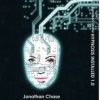

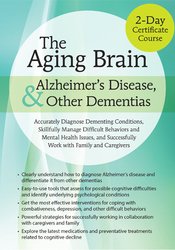
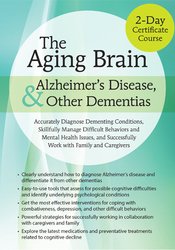
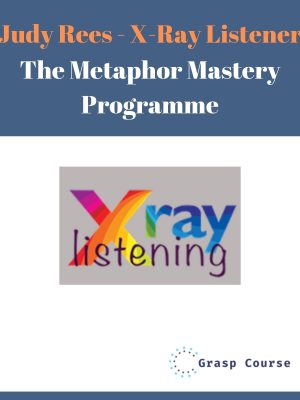
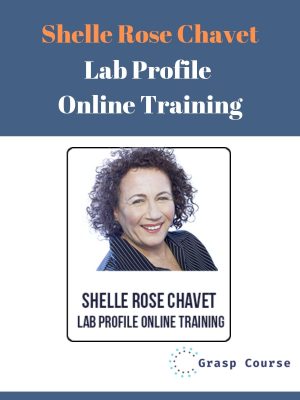
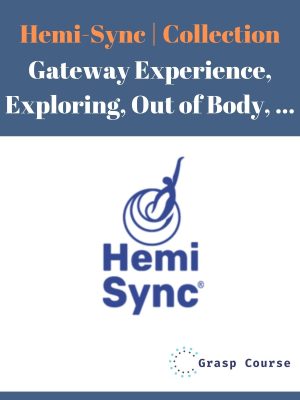
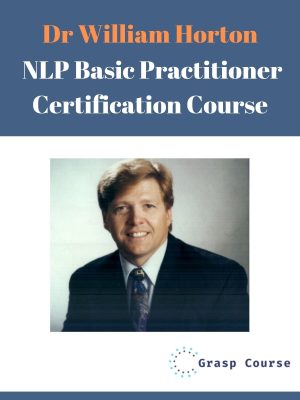
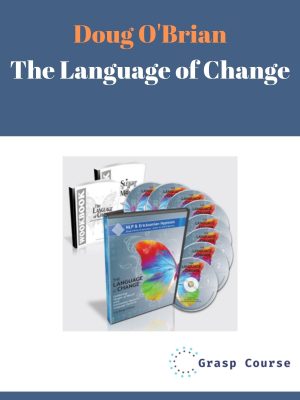

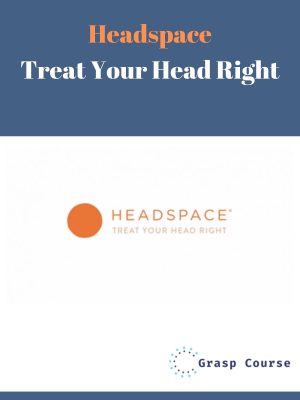

Reviews
There are no reviews yet.